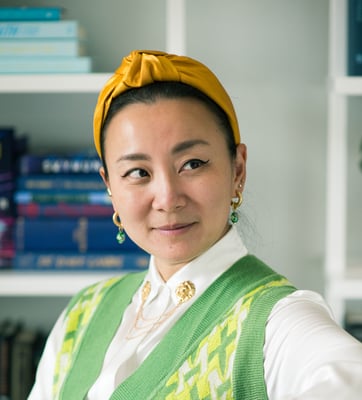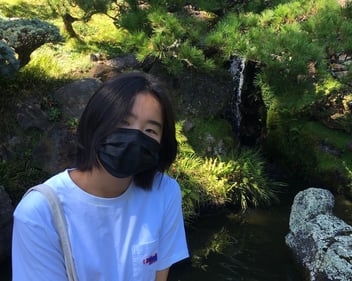Fantasy writing, often defined by marvelous magic, terrifying beasts, and otherworldly environments, quickly seeks to capture our attention and spark our imagination. From Tolkein’s deeply constructed and intricately detailed The Lord of the Rings to Hayao Miyazaki’s ethereal and sparsely-explained worlds, the fantasy genre spans many modes and styles of storytelling — all to the reader’s (or viewer’s) delight.
According to our Fantasy Competition guest judge, novelist Marie Lu, this genre can also deepen our understanding of fact, fiction, and human nature. “The beauty of fantasy and science fiction,” she says, “is that they enable us to put a magnifying glass on a real-world issue and weave an entire tapestry around it–distort it, exaggerate it, make it seen in a way that wouldn’t work in reality. It’s a way we can tackle big issues in a safe environment.”
Take a moment to read our interview with Marie Lu to broaden your knowledge of the fantasy genre and receive valuable advice on how to craft a compelling fantasy piece!
You were born in China and moved to Texas when you were five years old. Has this history, and drastic change of setting, informed and affected your interests and career as a writer?
Oh, absolutely. I write fiction, but it is always infused with and informed by both what I’ve experienced and what I see happening around the world. My characters–despite inhabiting fantasy and sci-fi worlds–often struggle with their identity in their societies, and with the level of control they have over the changes in their environments.
I’m drawn to writing because it’s my way of understanding myself and my world, of trying to understand why governments and nations do what they do, why people act and react the way they do.
Setting and world-building are such important elements in the fantasy genre. In your writing, what steps do you take to create the environment your characters live in?
I always create my main characters first, and from their personalities comes the world that would support them. For example, in my fantasy series The Young Elites, Adelina emerged as a girl who would spiral down into becoming a villain.
What kind of fantasy world would make her downfall empathetic to readers? So I started to create a magic system that would ostracize her and those like her, which bled into the kind of society that would fear this magic, and so on.
Similarly, Talin in Skyhunter emerged fully formed in my head as a young refugee warrior specially trained to fight in silence on the warfront. What kind of world would require her to fight without uttering a sound? From that question came the Ghosts, monsters that prowl the Skyhunter world, as well as the global war that she is enlisted to join.
You originally worked in the video game industry. How has a past in that creative field, which is not immediately associated with prose, impacted your storytelling process today?
I have deep respect for all creative fields because they all, from film to video games to music to fashion, revolve around telling a story. (Novels are just the oldest and most linear form of story.)
Games are an unique form of collaborative story between the creator and the consumer; you build a narrative that can be altered and added to by your players. It’s absolutely fascinating to me to think of story in that sense because you think not just about what you want in a story as a builder, but what your audience wants.
So when I’m building the plot and characters of my novels, I still ask myself constantly what my player–my reader–would want at a certain point, what they would expect and what they would like to be surprised by.
Your debut novel, Legend, was largely based on the relationship and conflict between Javert and Valjean from Les Miserables. What do we gain, in our community of writers and readers, in reimagining well-known stories in other genres and for potentially different audiences?
I believe there’s no such thing as a purely original story. All creations build upon other creations.
Older stories are snapshots of times in history when things were different from what they are now; different people were in power, different narratives were allowed and acceptable.
When we take those stories and build upon them with modern sensibilities, we have the power to change that narrative, give voice to those who had no voice before, take those familiar elements into new territories that would never have been accepted in their original times. Societies change; people change. Stories, therefore, change with us, help us see the familiar under a new light.
On that note, do you believe that there are real-world truths that can be better told, or even only told, through the fantasy genre?
Absolutely. The beauty of fantasy and science fiction is that they enable us to put a magnifying glass on a real-world issue and weave an entire tapestry around it–distort it, exaggerate it, make it seen in a way that wouldn’t work in reality.
It’s a way we can tackle big issues in a safe environment.
What basic elements might you look for in a winning fantasy story?
It’s hard to describe what draws me to a story! On the whole, I’m looking for a story that surprises and transports me, with characters and a world that linger with me after I’m finished. I’m excited to read all of the magical tales that I know we’ll receive. Wishing everyone the best of luck!






